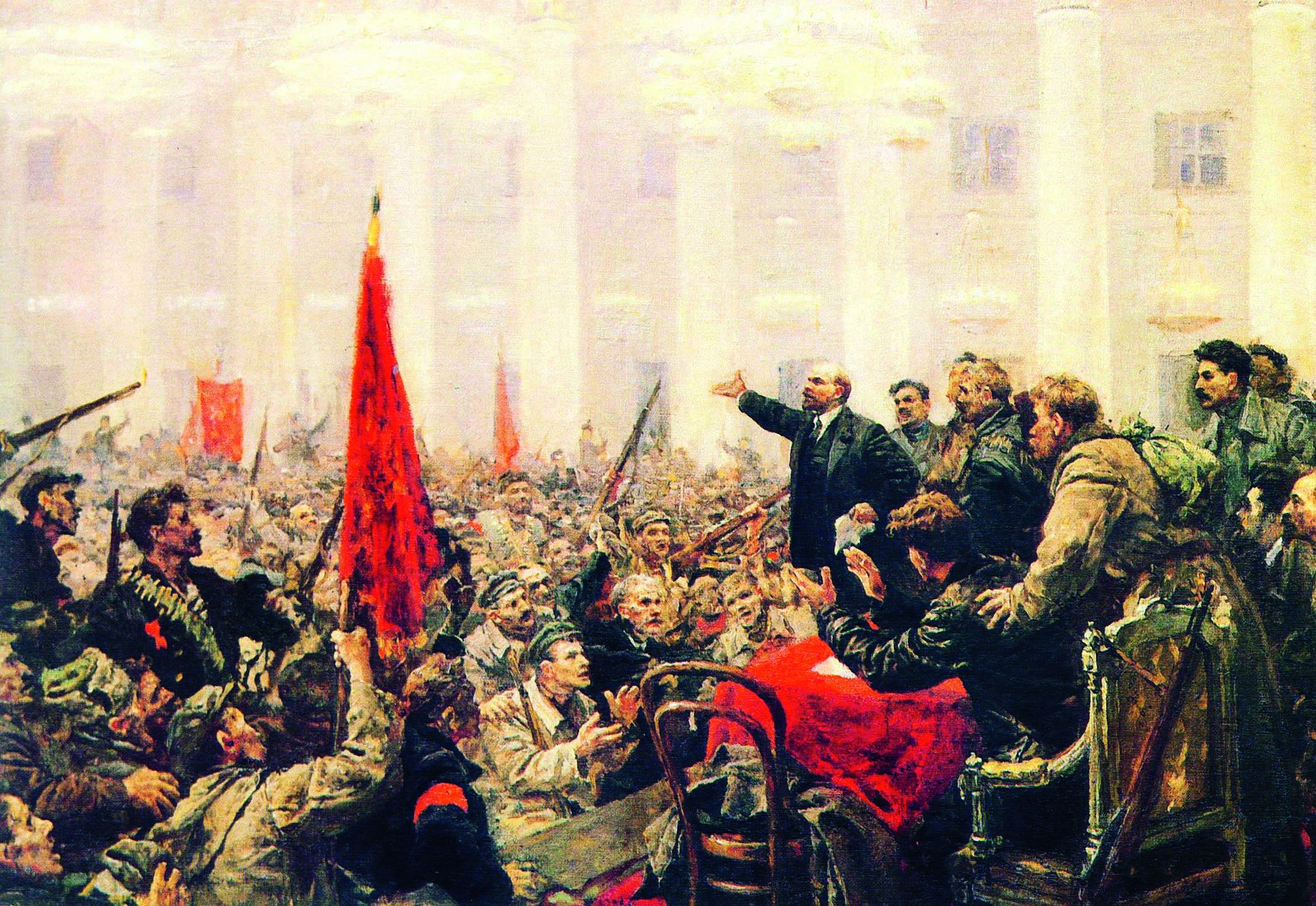More languages
More actions
(Created) Tag: Visual edit |
(Image) Tag: Visual edit |
||
| Line 1: | Line 1: | ||
A '''proletarian revolution''', also known as a '''socialist revolution''', '''communist revolution''', or '''workers' revolution''', is a [[revolution]] in which the [[proletariat]] seizes [[state]] power from the [[bourgeoisie]] and begins the transition to [[communism]]. It socializes [[Private property|bourgeois property]] and allows for [[Planned economy|economic planning]].<ref>{{Citation|author=[[Friedrich Engels]]|year=1880|title=Socialism: Utopian and Scientific|title-url=|chapter=Historical Materialism|chapter-url=https://www.marxists.org/archive/marx/works/1880/soc-utop/ch03.htm|publisher=Progress Publishers|mia=https://www.marxists.org/archive/marx/works/1880/soc-utop/index.htm}}</ref> | [[File:Lenin proclaims Soviet power.jpeg|thumb|Painting of the [[Russian revolution of 1917]], the first successful proletarian revolution]]A '''proletarian revolution''', also known as a '''socialist revolution''', '''communist revolution''', or '''workers' revolution''', is a [[revolution]] in which the [[proletariat]] seizes [[state]] power from the [[bourgeoisie]] and begins the transition to [[communism]]. It socializes [[Private property|bourgeois property]] and allows for [[Planned economy|economic planning]].<ref>{{Citation|author=[[Friedrich Engels]]|year=1880|title=Socialism: Utopian and Scientific|title-url=|chapter=Historical Materialism|chapter-url=https://www.marxists.org/archive/marx/works/1880/soc-utop/ch03.htm|publisher=Progress Publishers|mia=https://www.marxists.org/archive/marx/works/1880/soc-utop/index.htm}}</ref> | ||
== References == | ==References== | ||
[[Category:Revolutions]] | [[Category:Revolutions]] | ||
[[Category:Historical materialism]] | [[Category:Historical materialism]] | ||
<references /> | |||
Latest revision as of 00:26, 12 March 2023

A proletarian revolution, also known as a socialist revolution, communist revolution, or workers' revolution, is a revolution in which the proletariat seizes state power from the bourgeoisie and begins the transition to communism. It socializes bourgeois property and allows for economic planning.[1]
References[edit | edit source]
- ↑ Friedrich Engels (1880). Socialism: Utopian and Scientific: 'Historical Materialism'. Progress Publishers. [MIA]
